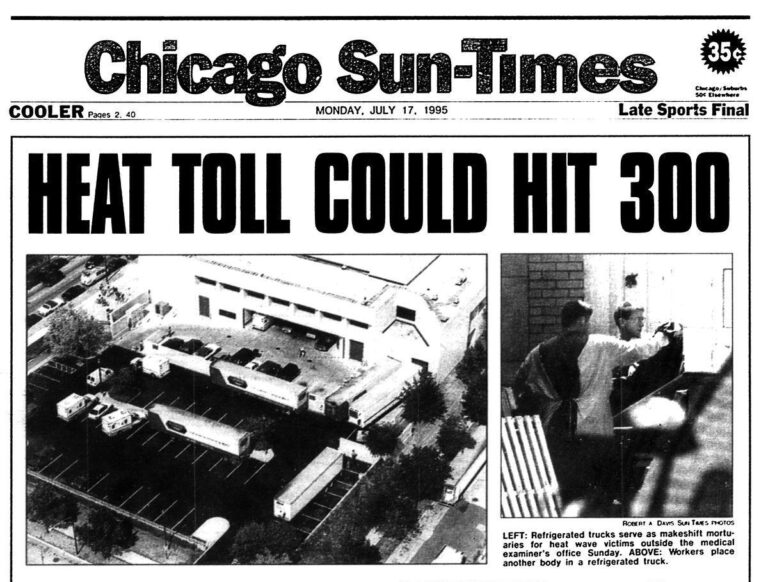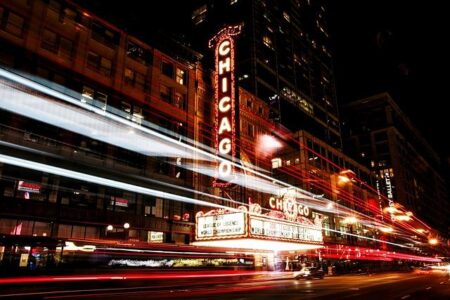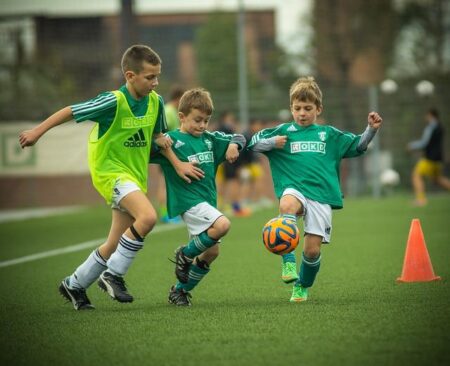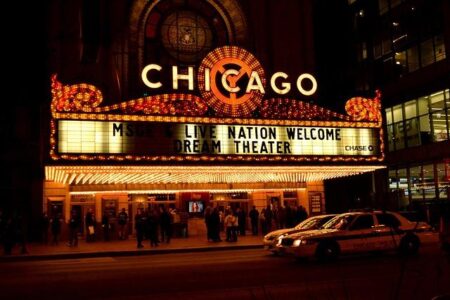Chicago Faces Rising Heat-Related Health Concerns Amid Weekend Temperature Spike
As Chicago prepares for an intense heatwave this weekend, public health officials are urging both locals and visitors to exercise caution against heat-induced illnesses. With numerous outdoor events attracting large crowds, the risk of heat exhaustion and heatstroke is escalating. Medical professionals highlight the critical need for proper hydration, access to shade, and early symptom detection to avoid severe health complications during the city’s hottest days this summer. This article explores the dangers and safety strategies related to heat illnesses at Chicago’s weekend festivities.
Spike in Heat-Related Medical Cases at Chicago’s Outdoor Events
Across several major venues in Chicago, emergency responders have reported a critically important rise in heat-related incidents as temperatures climb well beyond average seasonal levels. Medical personnel stationed at these outdoor gatherings have treated numerous individuals exhibiting signs of heat exhaustion and heatstroke. Common symptoms observed include dizziness, nausea, rapid pulse, and mental confusion, necessitating immediate medical attention to prevent escalation. Hospitals in the area have also seen a notable increase in admissions linked to heat stress, underscoring the importance of staying hydrated and resting in shaded areas.
In response, event coordinators and health authorities have joined forces to implement several protective measures:
- Expanded the number of hydration stations and cooling zones
- Deployed additional first aid teams equipped with cold compresses and electrolyte solutions
- Issued frequent heat safety alerts through social media platforms and on-site announcements
Health experts emphasize that recognizing symptoms early and seeking prompt treatment are vital to managing heat-related conditions effectively. Community members are encouraged to take preventive actions, especially during prolonged exposure to high temperatures.
| Symptom | Heat Exhaustion | Heatstroke |
|---|---|---|
| Body Temperature | Under 104°F | Exceeds 104°F |
| Skin Condition | Moist, pale | Hot, dry |
| Mental State | Alert or dizzy | Confused or unconscious |
Recognizing Early Warning Signs of Heat-Related Illness at Outdoor Events
Participants attending outdoor activities this weekend should be alert to initial symptoms of heat exhaustion and heatstroke. Typical signs include:
- Excessive sweating or, in certain specific cases, a lack of perspiration
- Weakness, lightheadedness, or dizziness
- Persistent headache and intense thirst
- Nausea or vomiting episodes
- Cool, clammy, or pale skin
Ignoring these symptoms can lead to hazardous health outcomes. If an individual experiences confusion, a sudden spike in body temperature above 103°F, or loss of consciousness, immediate emergency care is essential.
| Symptom | Severity Level |
|---|---|
| Dizziness | Mild to Moderate |
| Cold, clammy skin | Mild |
| Rapid heartbeat | Moderate |
| Confusion or disorientation | Severe – Immediate Emergency |
Effective Strategies for Event Organizers and Attendees to Mitigate Heat Risks
To safeguard public health during extreme heat, event planners must adopt extensive measures. Providing ample shaded retreats and cooling stations equipped with fans and misting devices can considerably reduce heat exposure. Ensuring easy access to free drinking water encourages continuous hydration, a key factor in preventing heat-related illnesses. Clear informational signage about heat illness symptoms and well-staffed first aid areas enable rapid response to medical issues. Additionally, scheduling events during cooler morning or evening hours and limiting strenuous activities during peak heat times can further reduce risks.
Attendees should also take personal precautions such as wearing light, breathable fabrics and applying broad-spectrum sunscreen to prevent sunburn. It is advisable to pace physical exertion, take regular breaks, and stay updated on weather alerts via mobile devices for timely heat warnings. Below is a practical checklist for both organizers and participants to enhance heat safety awareness:
- Use hats and UV-protective sunglasses for added sun defense
- Drink water frequently,even without feeling thirsty
- Be alert to early heat stress symptoms: dizziness,confusion,excessive sweating
- Avoid alcohol and heavy meals before and during outdoor activities
- Utilize cooling towels or ice packs when feeling overheated
City Health Authorities Release Heat Safety Alerts and Cooling Center Information
With temperatures forecasted to surpass 95°F this weekend,Chicago’s public health officials have issued urgent advisories urging residents and visitors to adopt thorough heat safety practices. Maintaining hydration is paramount, with recommendations to consume water regularly regardless of thirst. Officials also advise seeking shade frequently, avoiding intense outdoor exertion between 11 a.m. and 4 p.m., and wearing loose, lightweight clothing. Vulnerable populations-including seniors, children, and those with chronic illnesses-are encouraged to take extra precautions and maintain contact with family or neighbors.
To support those lacking adequate cooling at home, the city has opened multiple cooling centers featuring air conditioning and water stations. These centers will operate extended hours throughout the weekend to provide relief and reduce heat-related health emergencies. Key cooling center locations include:
- Harold Washington Library Center: 400 S State St.
- South Shore Cultural Center: 7059 S South Shore Dr.
- Northwest Side Senior Center: 5700 W North Ave.
- Garfield Park Conservatory: 300 N Central Park Ave.
| Cooling Center | Address | Operating Hours |
|---|---|---|
| Harold Washington Library | 400 S State St. | 8:00 AM – 9:00 PM |
| South Shore Cultural Center | 7059 S South Shore Dr. | 9:00 AM – 8:00 PM |
| Northwest Side Senior Center | 5700 W North Ave. | 10:00 AM – 7:00 PM |
| Garfield Park Conservatory | 300 N Central Park Ave. | 9:00 AM – 6:00 PM |
Summary: Staying Safe During Chicago’s Heatwave
As Chicago experiences a surge in temperatures, it is crucial for residents and visitors to take heat-related health risks seriously during this weekend’s outdoor events. Heat exhaustion and heatstroke present significant dangers, but with proper hydration, shade-seeking, and symptom awareness, many emergencies can be prevented. Local authorities and event organizers are actively providing resources such as cooling stations and medical support to protect public health. Staying informed, prepared, and cautious will be key to enjoying summer activities safely amid the city’s rising heat.





